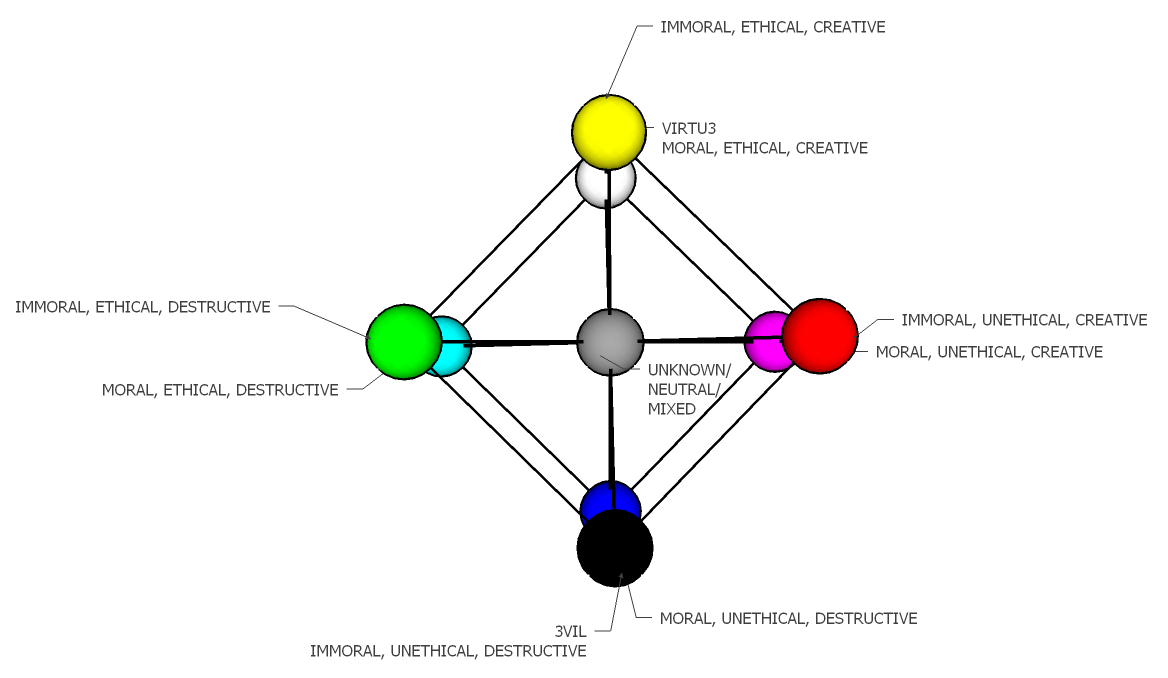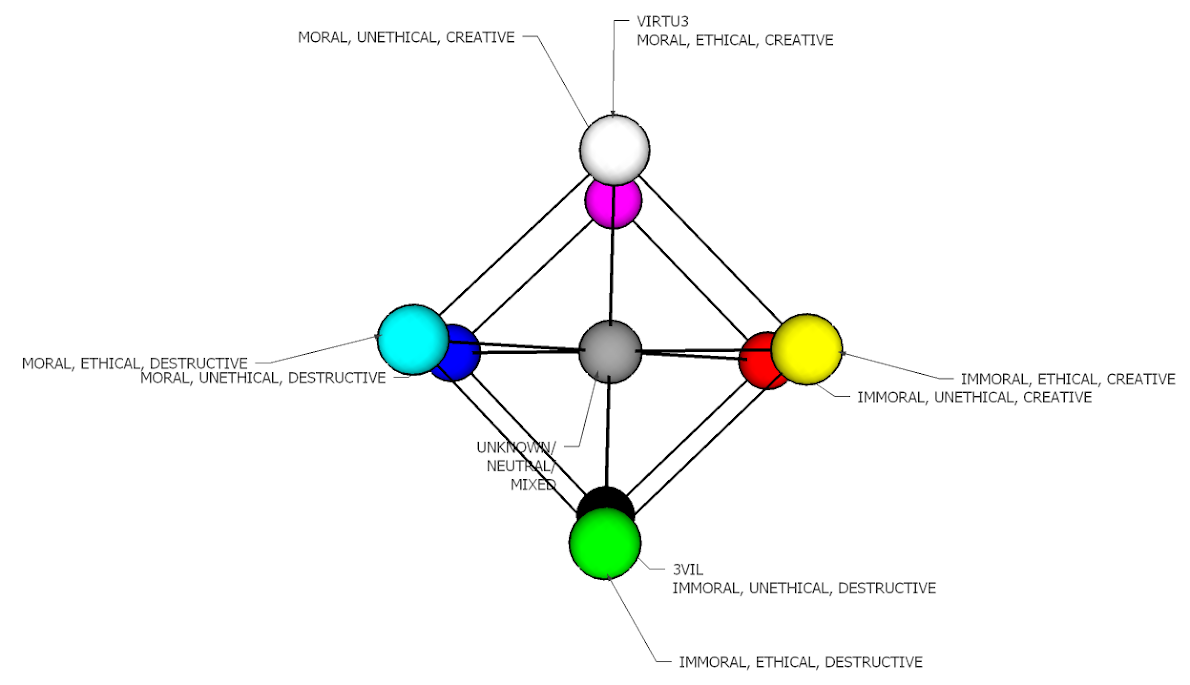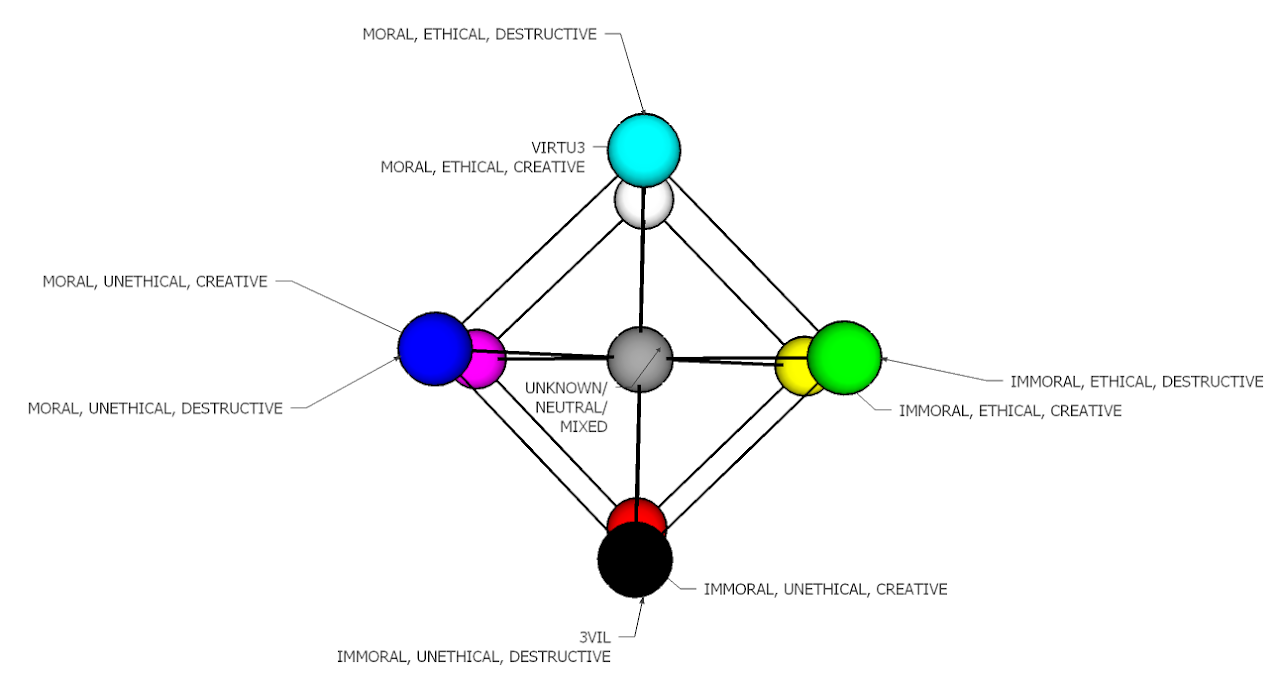The table below shows how differences in the priorities of institutions contribute to conflicts within and between societies. True VIRTU3 comes from each of these institutions compensating for the weaknesses in the others.
| COMMUNITY | GOVERNMENT | MARKETPLACE | |
| DOMAIN | Moral & Ethical | Moral & Consequential | Ethical & Consequential |
| PLUS/MINUS | Right & Good/ Wrong & Bad |
Positive & Good/ Negative & Bad |
Right & Positive/ Wrong & Negative |
| CATEGORY | Theory & Beliefs | History & Beliefs | Theory & History |
| TIME | The Present & Future | The Past & Future | The Past & Present |
| SPACE | Local | National | Global |
| HIGHEST VALUE |
Idealized Truth | Idealized Authority | Revealed Truth |
| MEASURE OF SUCCESS | Population Growth | National Autonomy | International Influence |
| BASIS | Self-Knowledge & Human Nature |
Self-Knowledge & Observed Results |
Human Nature & Observed Results |
| STYLES OF REASONING |
Intuitive & Deductive |
Intuitive & Inductive |
Deductive & Inductive |
| FAILURE MODES |
Self-Delusion/ Logical Fallacies |
Self-Delusion/ Black Swans |
Logical Fallacies/ Black Swans |
| SOURCE OF ERROR | Consequential Blindness | Ethical Blindness | Moral Blindness |
| MORAL PHILOSOPHY | Religion | Interventionism | Laissez-Faire |
| SCIENTIFIC PRIORITY | Social Correctness | Social Engineering | Engineering |
| JUDICIAL EMPHASIS | Mens Rea & Fault-Based Liability |
Mens Rea & No-Fault Liability |
Fault-Based Liability & No-Fault Liability |
| RELIGIOUS FOCUS | Divine Grace & Justice | Divine Grace & Favor | Divine Justice & Favor |
| ECONOMIC TOOLS | Economic Philosophy & Economic Praxeology |
Economic Philosophy & Econometric Analysis |
Economic Praxeology & Econometric Analysis |
| POLITICAL NARRATIVES | Aspirational Rationalism |
Aspirational Pragmatism |
Rational Pragmatism |
| AMERICAN POLITICS | Progressive Movement |
Bipartisan Establishment |
Conservative Movement |
| POLITICAL ECONOMICS | Cooperative Socialism | Regulatory Corporatism | Market Capitalism |
| POLITICAL HIERARCHY | Cooperative Meritocracy |
Authoritarian Collectivism |
Market Aristocracy |
| POLITICAL POWER-GROUP | Revolutionary Patriot-Insurgents |
The Government (Civil & Military) |
Reactionary Patriot-Insurgents |
| POLITICAL FAILURE MODE | Revolutionary Fragmentation |
Military Totalitarianism |
Reactionary Fragmentation |



